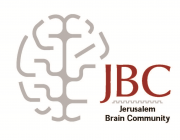
Baruch Minke
Prof. Baruch Minke completed all his studies at the Hebrew University –B.Sc. in biology, M.Sc. in physiology and Ph.D. in biophysics. Upon receiving his Ph.D. in 1973 he continued his studies in the United States and specialized in genetic dissection of signal transduction systems. Two years later, he brought this pioneering field at that time, back with him to Israel when joining the academic staff of the Hebrew University, first as a lecturer in the Department of Physiology of the Faculty of Medicine, later, as associate professor (1982) and from 1987, as full professor. He was also a Visiting Researcher at the Max Planck Institute for Biological Cybernetics in Germany, where – in a collaborative research – brought to a breakthrough in solving an old mystery: the UV sensitivity mechanism in fly vision. Following his research, he was invited as Visiting Professor to Purdue University. Over the years he collaborated with researchers in Europe: in Britain (Cambridge University), the Netherlands (Groningen University) and in Germany (the Max Planck Institute, the Aachen Technical University and the universities of Saarland, Karlsruhe and Hohenheim. He headed the Minerva Center for Studies of Visual Transduction. For many years he studied the visual process of the Drosophila fly, combining biochemical, electrophysiological and genetic disciplines. At the Department of Medical Neurobiology in the Institute for Medical Research Israel-Canada (IMRIC) and the Edmond and Lili Safra Center for Brain Sciences (ELSC) of the Hebrew University, he has continued his long term research on the ionic channel, which he designated TRP and characterized its properties. TRP channels are a vital and common component in important sensory systems such as touch, taste, pain, heat and cold sensations and others. His studies in this field made it possible to decipher sensory mechanisms of living organisms, including humans. His studies awarded him with prizes, including a Fulbright Scholarship (1973), an award from the Bat-Sheva de Rothschild Fund, a research fund for excellent researcher from the Wolf Foundation (1985), the Prince of Asturias Award for Technical and Scientific Research from Spain (2010) and the EMET prize in Brain Research (2010).

